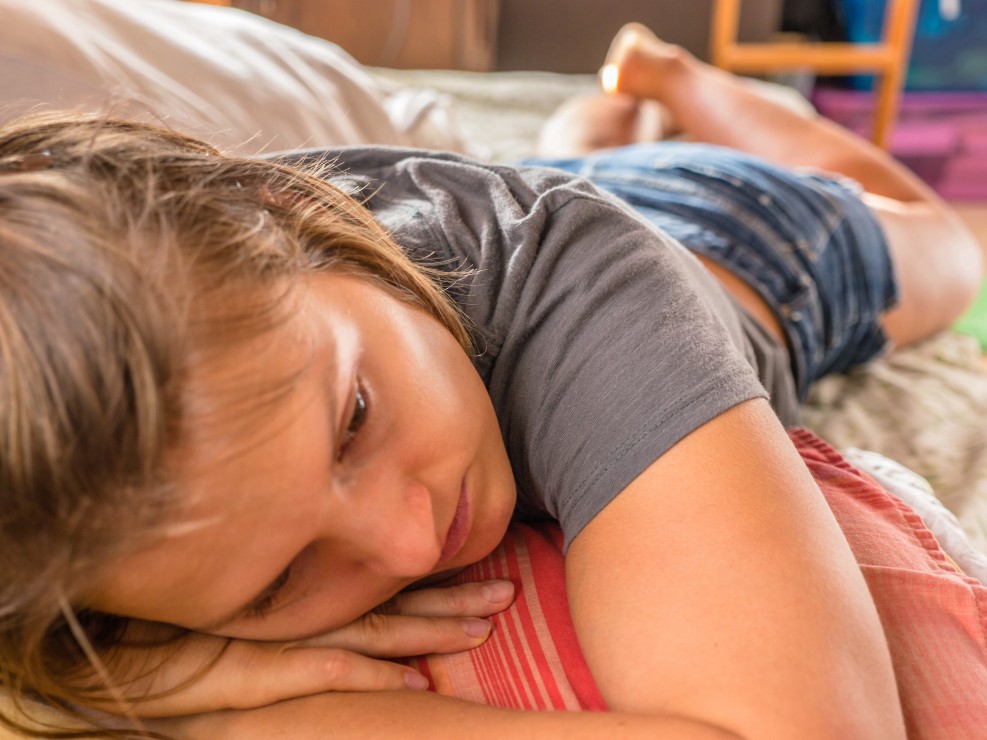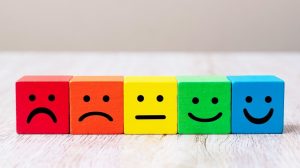Decoding Dyslexia
 Kids have a lot to learn in their first five years of life. They learn to walk, talk, and eventually to start reading. But while kids can pick up walking and talking naturally, they must be taught how to read. Children who struggle with the building blocks of reading may be at risk for developing dyslexia. Read more ›
Kids have a lot to learn in their first five years of life. They learn to walk, talk, and eventually to start reading. But while kids can pick up walking and talking naturally, they must be taught how to read. Children who struggle with the building blocks of reading may be at risk for developing dyslexia. Read more ›


 Technology has changed the way we interact with each other. Social media puts other people just keystrokes away. This helps some feel like they have more social support. But for others, it can increase isolation and depression.
Technology has changed the way we interact with each other. Social media puts other people just keystrokes away. This helps some feel like they have more social support. But for others, it can increase isolation and depression. 
 Everyone goes through tough times in life. But many things can help you survive—and even thrive—during stressful periods. There’s no one-size-fits-all approach. Learning healthy ways to cope and how to draw from resources in your community can help you build resilience.
Everyone goes through tough times in life. But many things can help you survive—and even thrive—during stressful periods. There’s no one-size-fits-all approach. Learning healthy ways to cope and how to draw from resources in your community can help you build resilience. 
 Suicide is the second leading cause of death for adolescents and young adults in the United States. In-person bullying is known to raise the risk of thoughts of suicide and attempts for both victims and perpetrators.
Suicide is the second leading cause of death for adolescents and young adults in the United States. In-person bullying is known to raise the risk of thoughts of suicide and attempts for both victims and perpetrators. 
 People deal with difficult feelings in all sorts of ways. They may talk with friends, go work out, or listen to music. But some people may feel an urge to hurt themselves when distressed.
People deal with difficult feelings in all sorts of ways. They may talk with friends, go work out, or listen to music. But some people may feel an urge to hurt themselves when distressed. 
 What would childhood be without
What would childhood be without 
 Being social and making friends isn’t always easy. Relationships have many subtleties. But people with autism spectrum disorder, or ASD, struggle more than most. For them, communicating with others can be very difficult.
Being social and making friends isn’t always easy. Relationships have many subtleties. But people with autism spectrum disorder, or ASD, struggle more than most. For them, communicating with others can be very difficult. 
 Sometimes, the pace of modern life barely gives you time to stop and rest. It can make getting a good night’s sleep on a regular basis seem like a dream.
Sometimes, the pace of modern life barely gives you time to stop and rest. It can make getting a good night’s sleep on a regular basis seem like a dream.
 Paying attention to what’s going on right this second can be hard. We often spend more time thinking about what’s coming up in the future. Or dwelling on things in the past we can’t change. We can miss out on experiencing the present.
Paying attention to what’s going on right this second can be hard. We often spend more time thinking about what’s coming up in the future. Or dwelling on things in the past we can’t change. We can miss out on experiencing the present. 
 Suicide rates for adolescents have risen over the past two decades. In 2019, nearly 1,600 adolescents between the ages of 12 and 17 died by suicide. Only about 40% of adolescents who die by suicide have been treated for a mental health concern. To help ensure that at-risk youth receive help, it is important to screen broadly for suicide risk.
Suicide rates for adolescents have risen over the past two decades. In 2019, nearly 1,600 adolescents between the ages of 12 and 17 died by suicide. Only about 40% of adolescents who die by suicide have been treated for a mental health concern. To help ensure that at-risk youth receive help, it is important to screen broadly for suicide risk. 

